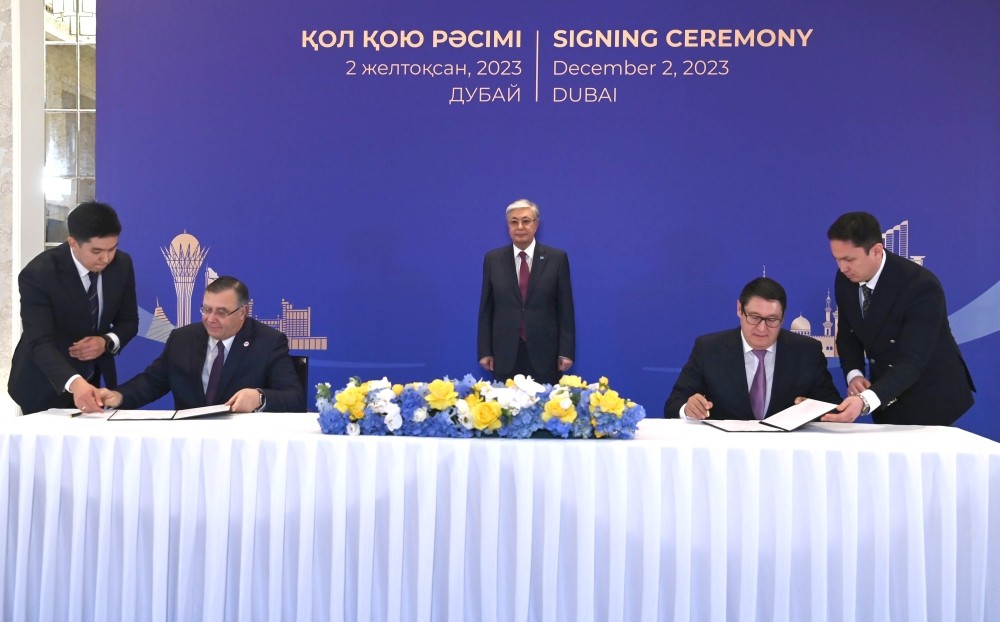Uzbekistan Signs Strategic Partnership Agreement with Abu Dhabi Future Energy Company
Uzbekistan Signs Strategic Partnership Agreement with Abu Dhabi Future Energy Company Following a meeting between the President of Uzbekistan and a delegation of leading UAE enterprises led by Minister of Investment, Muhammad Hassan al-Suwaidi, an agreement on a strategic partnership with the Abu Dhabi Future Energy Company (Masdar) was signed. On December 2nd, President of Uzbekistan, Shavkat Mirziyoyev received a delegation of leading UAE companies led by the Minister of Investment and Chief Executive Officer of the ADQ holding, Muhammad Hassan al-Suwaidi. The meeting was held as part of the business program in Dubai, where the UN climate conference (COP28) took place a day earlier. The delegation also included the heads of leading Emirati companies, TAQA, Jasim Hussein Thabet, and Masdar Muhammad Jamil al-Ramahi. The parties discussed issues of supporting and promoting joint projects in trade, economic and investment cooperation. After the meeting, President Mirziyoyev presented the Chief Executive Officer of Masdar, Muhammad Jamil al-Ramahi, with a state award of Uzbekistan - the Order of Dustlik for his personal contribution to the development of Uzbek-Emirati multifaceted relations. Masdar is building several solar photovoltaic power plants in Uzbekistan. In 2023, the company began the construction of three photovoltaic power plants - Nur Jizzakh for 220 MW in the Jizzakh region, Nur Samarkand for 220 MW in the Samarkand region, and Nur Sherabad for 457 MW in the Surkhandarya region. For these projects, it attracted loans of almost $400 million.





